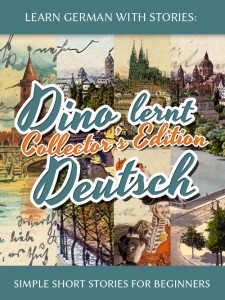Whenever people ask me which online German-English dictionary is the best, whether to use an app, a browser extension, an offline lookup tool or just go full retro and lug around a paper dictionary, I always answer: “Whatever works for you is best.”
Most online dictionaries today are high quality and will translate most words and even phrases without a hitch. But since there are still key differences in terms of layout, results and other features, I’d like to share a quick overview of my favorite German-English dictionaries in this post.
Dict.cc
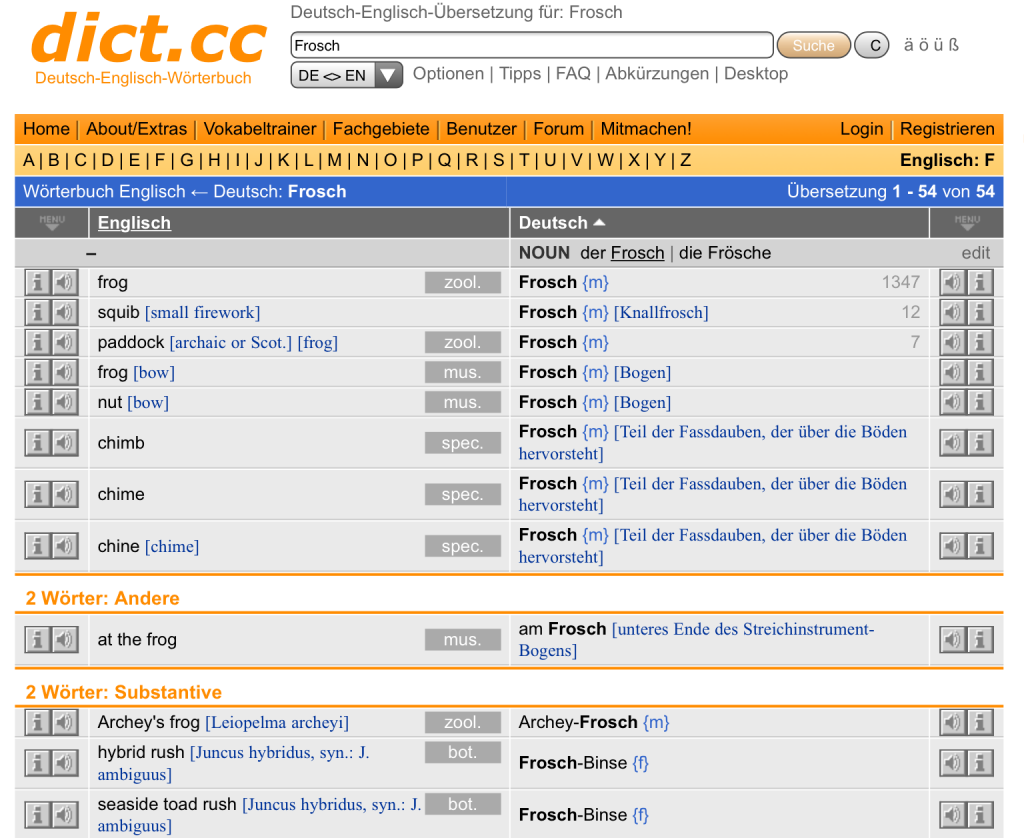
This is by far one of my favorite German-English dictionaries online. It doesn’t have tons of bells and whistles, the design may be somewhat outdated, but its real strength is in the results, which include many idiomatic phrases and terminology from a variety of fields. Since every user can contribute, correct and verify translations dict.cc is something like the Wikipedia of German-English dictionaries: open, fast and community-driven. But don’t take my word for it. The proof is in the pudding!
![]() Vocabulary Trainer
Vocabulary Trainer
![]() Pronunciation Audio
Pronunciation Audio
![]() iOS App
iOS App
![]() Android App
Android App
![]() Free Database download
Free Database download
Dict.leo.org
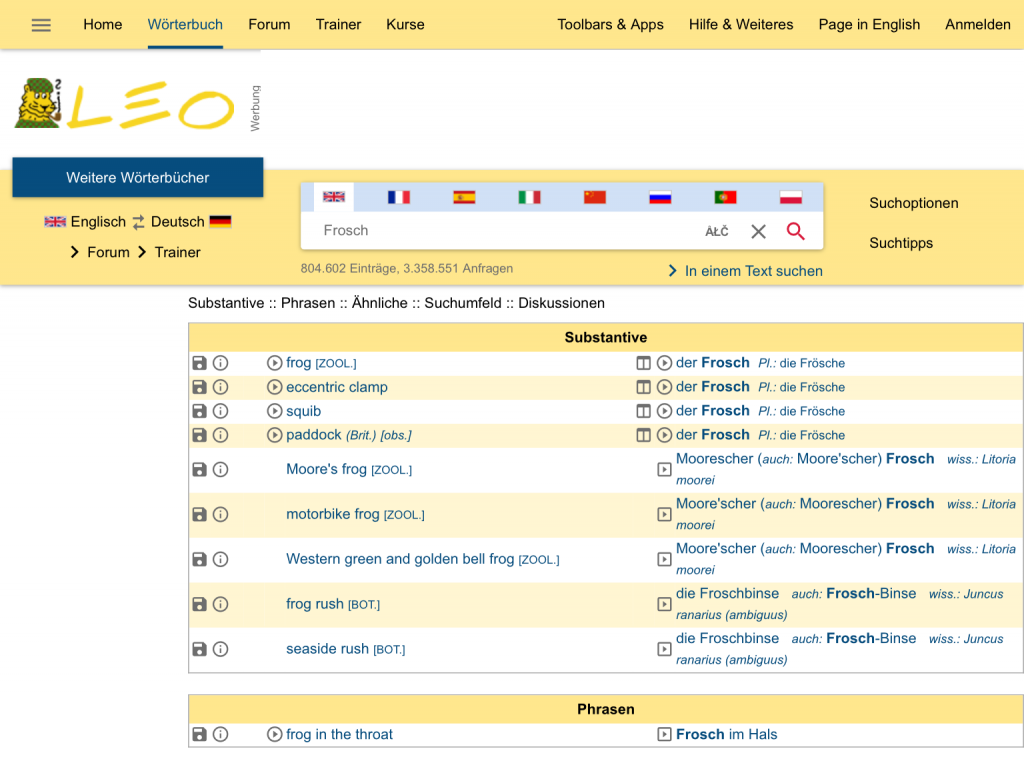
In terms of features and quality this one is very similar to dict.cc, so it may just be a matter of preference – some of my German teaching colleagues swear by Leo, some by Dict.cc. In my experience, Leo may not always display as many results as dict.cc but one cool feature is that the results include forum entries that discuss the queried word which sometimes helps to clear up certain nuances. Leo has a very active community and the forum is always worth a visit when you’re stuck finding a translation. Another nice feature is that it shows you orthographically similar words on results pages. Recently, Leo also started providing for-pay (free-trial available) language learning courses, which may be helpful for beginners.
![]() Vocabulary Trainer
Vocabulary Trainer
![]() Pronunciation Audio
Pronunciation Audio
![]() iOS App
iOS App
![]() Android App
Android App
![]() Windows Phone App
Windows Phone App
![]() Firefox-Add-on
Firefox-Add-on
![]() Chrome-Extension
Chrome-Extension
Bab.la
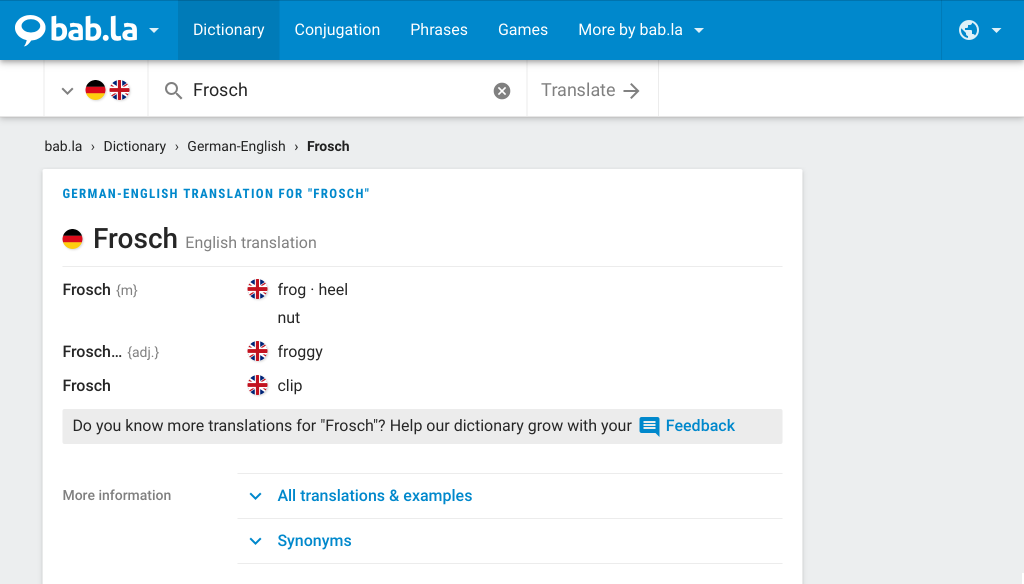
First of all, bab.la has a really clean and neat design, and in terms of presentation is probably one of my favorites. Search results are very easy to navigate and always come with synonyms, examples and context. On top of this very solid and beautifully designed dictionary, bab.la offers many other helpful features such as a conjugation browser, quizzes, grammar overview and games.
![]() Pronunciation Audio
Pronunciation Audio
![]() iOS App (discontinued)
iOS App (discontinued)
Pons.com
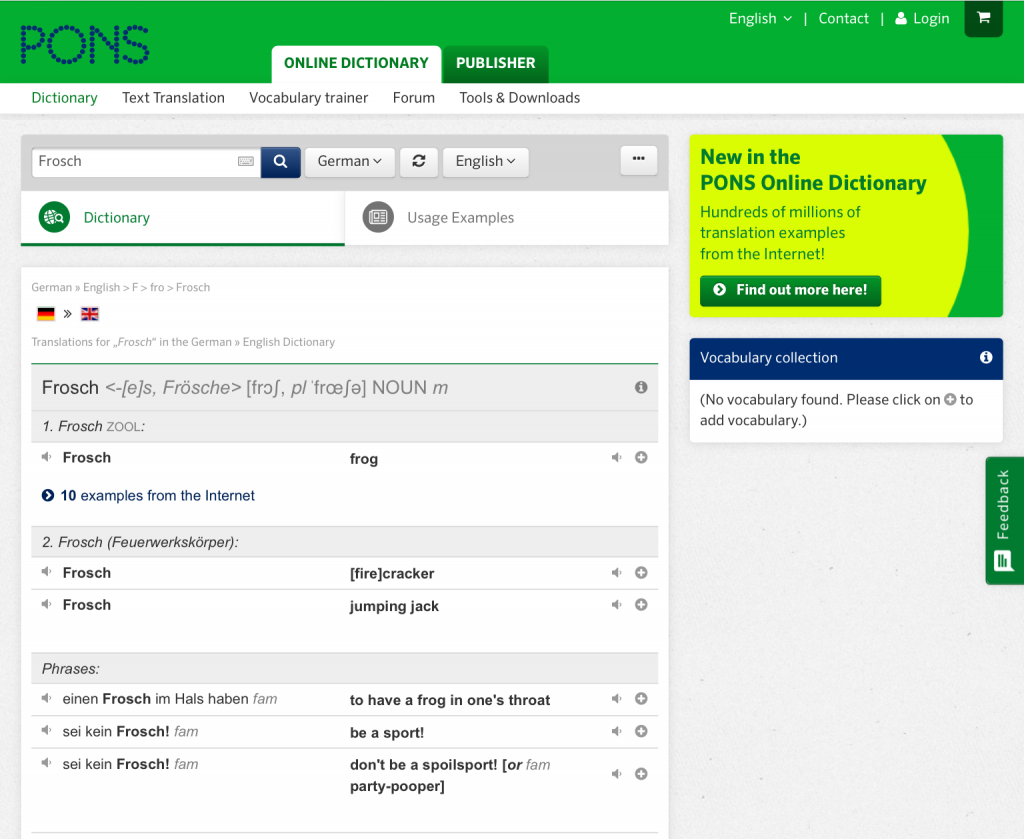
This online dictionary is provided by Pons, a renowned German publisher of dictionaries that was established in 1978. Just like their paper publications, the Pons online dictionary features a very clean layout and solid translations. One feature that I really like is that it shows “Usage Examples”, i.e. actual real-world examples how the word or phrase is used on websites.
![]() Vocabulary Trainer (also available as app)
Vocabulary Trainer (also available as app)
![]() Pronunciation Audio
Pronunciation Audio
![]() iOS App
iOS App
![]() Android App
Android App
Linguee.com
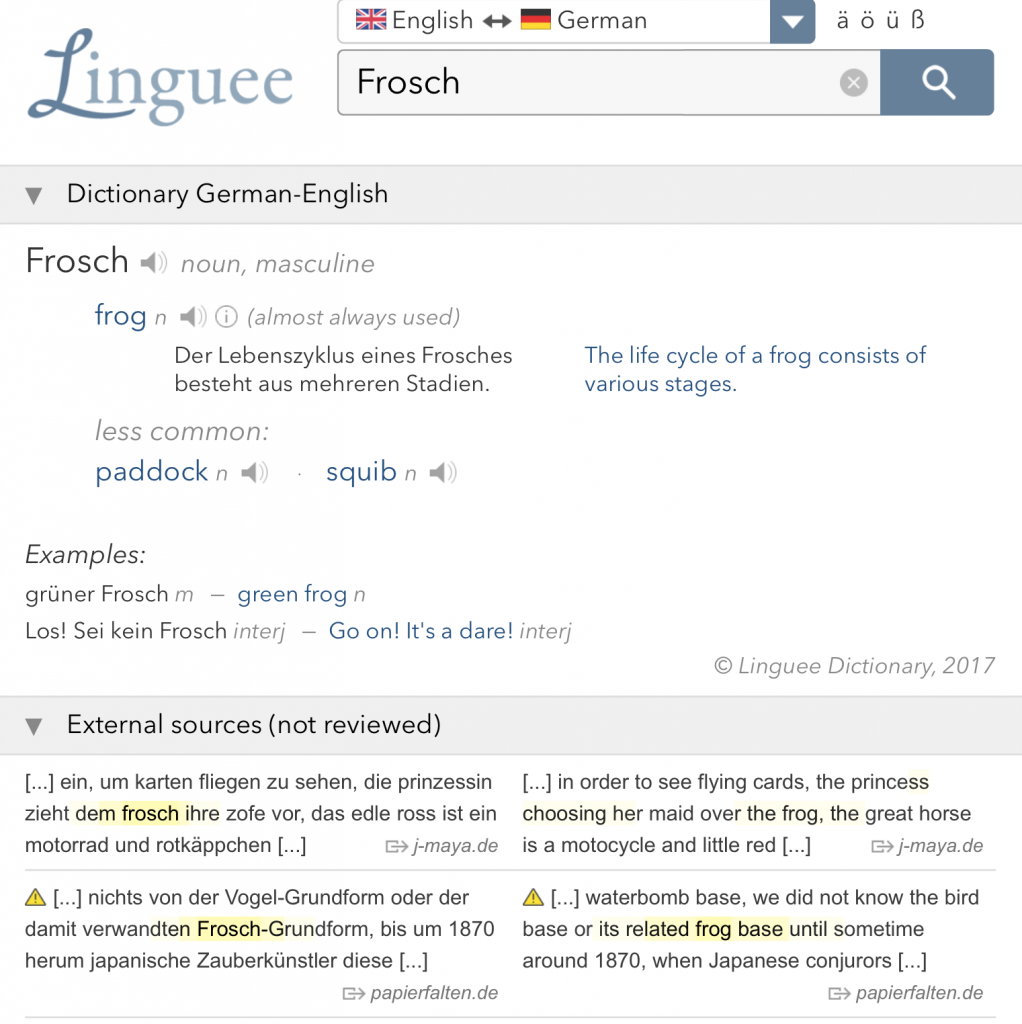
Last but not least, I’d like to mention linguee which is a bit different because strictly speaking it’s not a dictionary but a search-engine for translations. You can also use it lookup simple words but its real strength lies in searching through a vast database of translations. For example, if a web-site has multiple language versions, Linguee will show you two sentences that include your query side by side. When you struggle with translating a certain word in context, Linguee will show you how other people before you have solved it.
![]() Pronunciation Audio
Pronunciation Audio
![]() iOS App
iOS App
![]() Android App
Android App
Which is your favorite dictionary? Do you prefer an online version, app or paper edition? Let me know in the comments!


